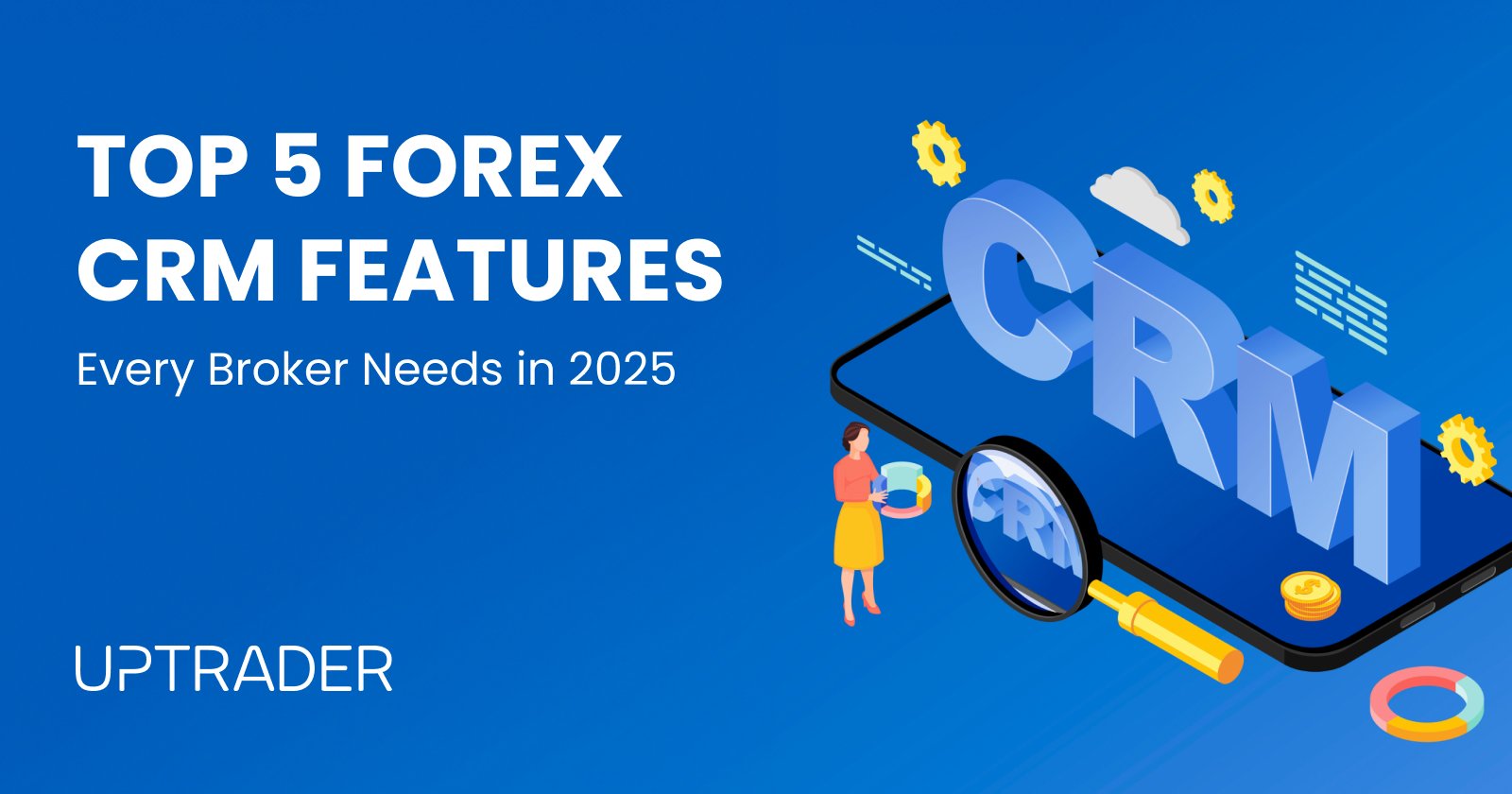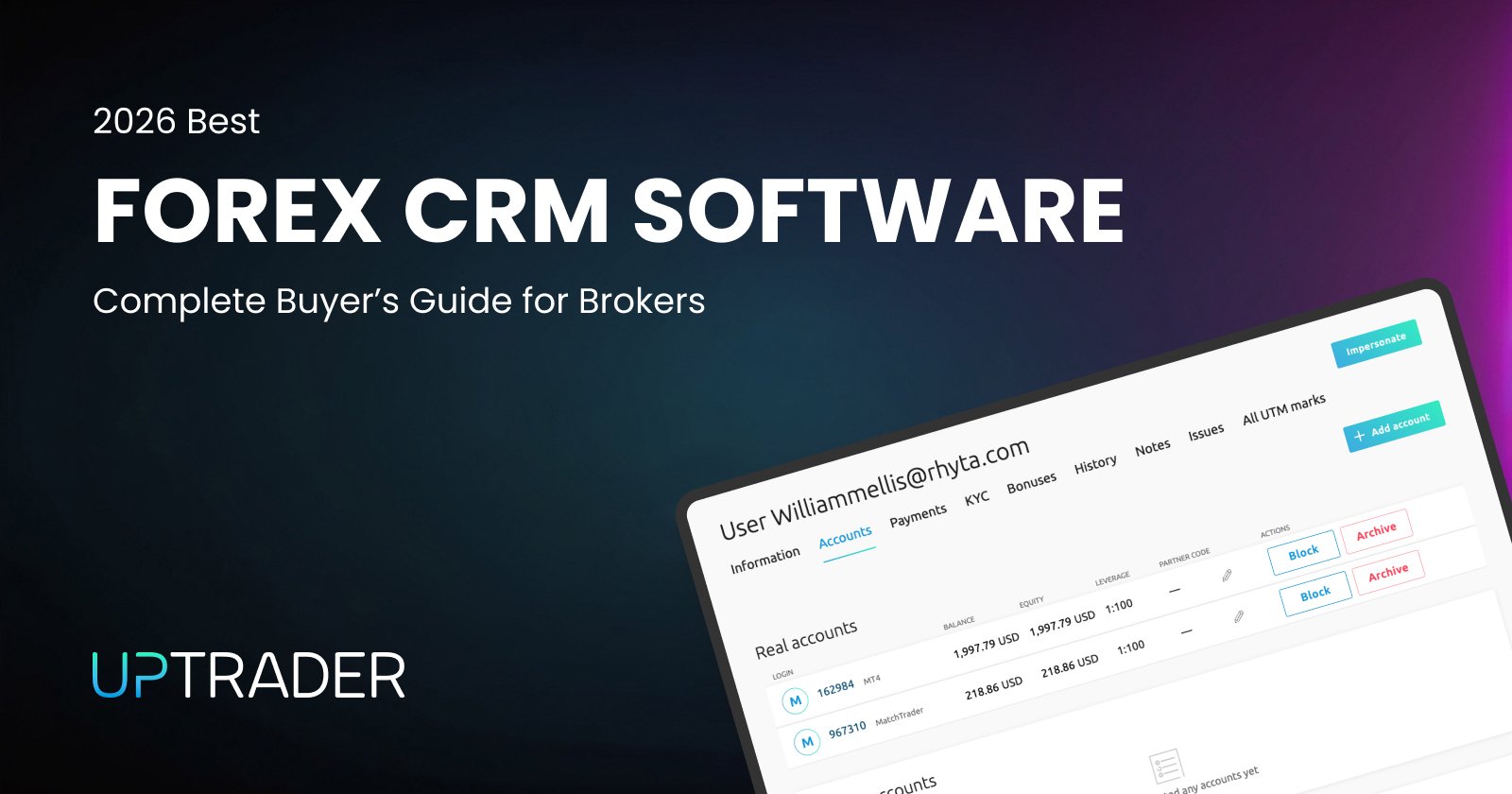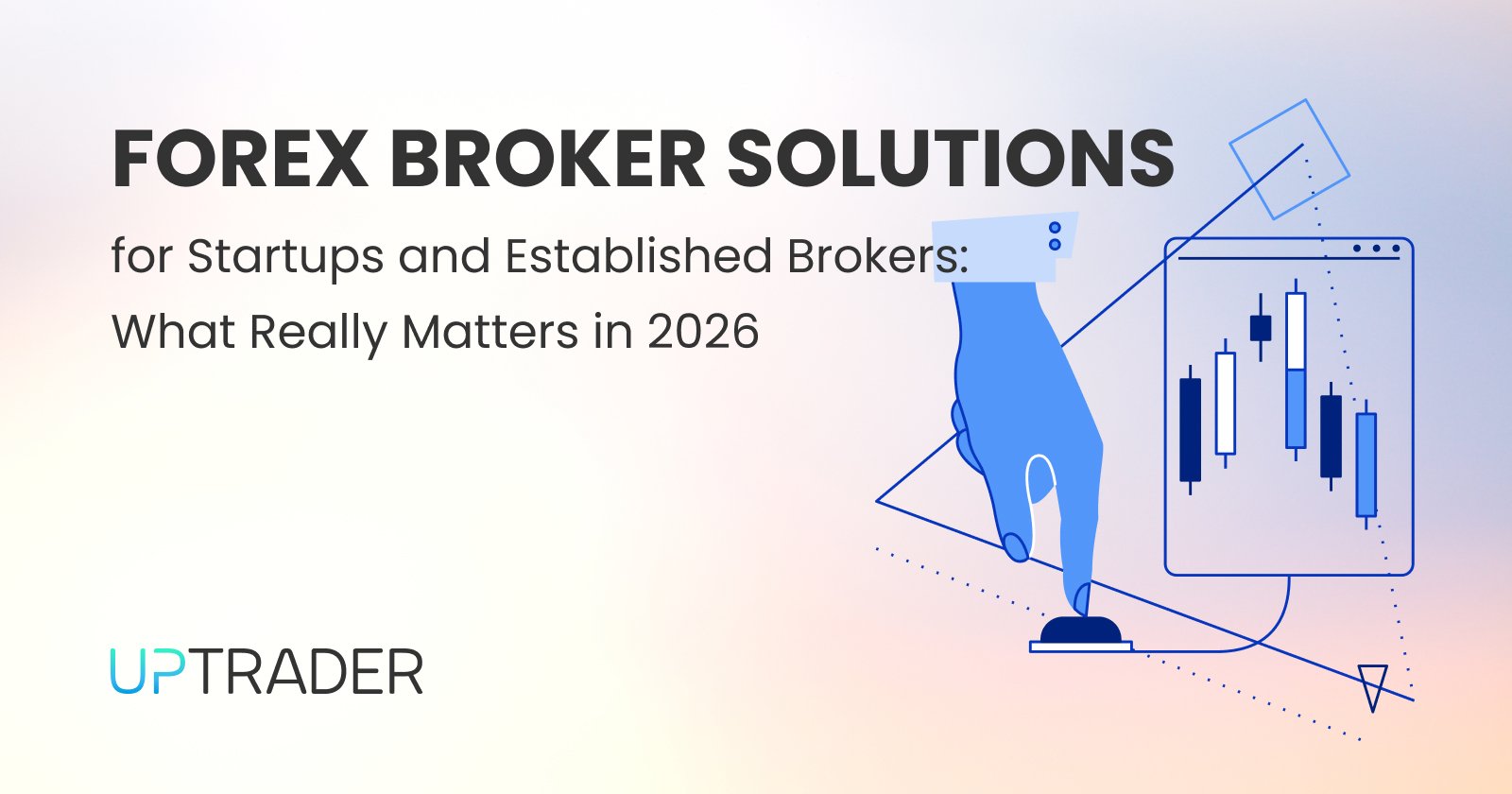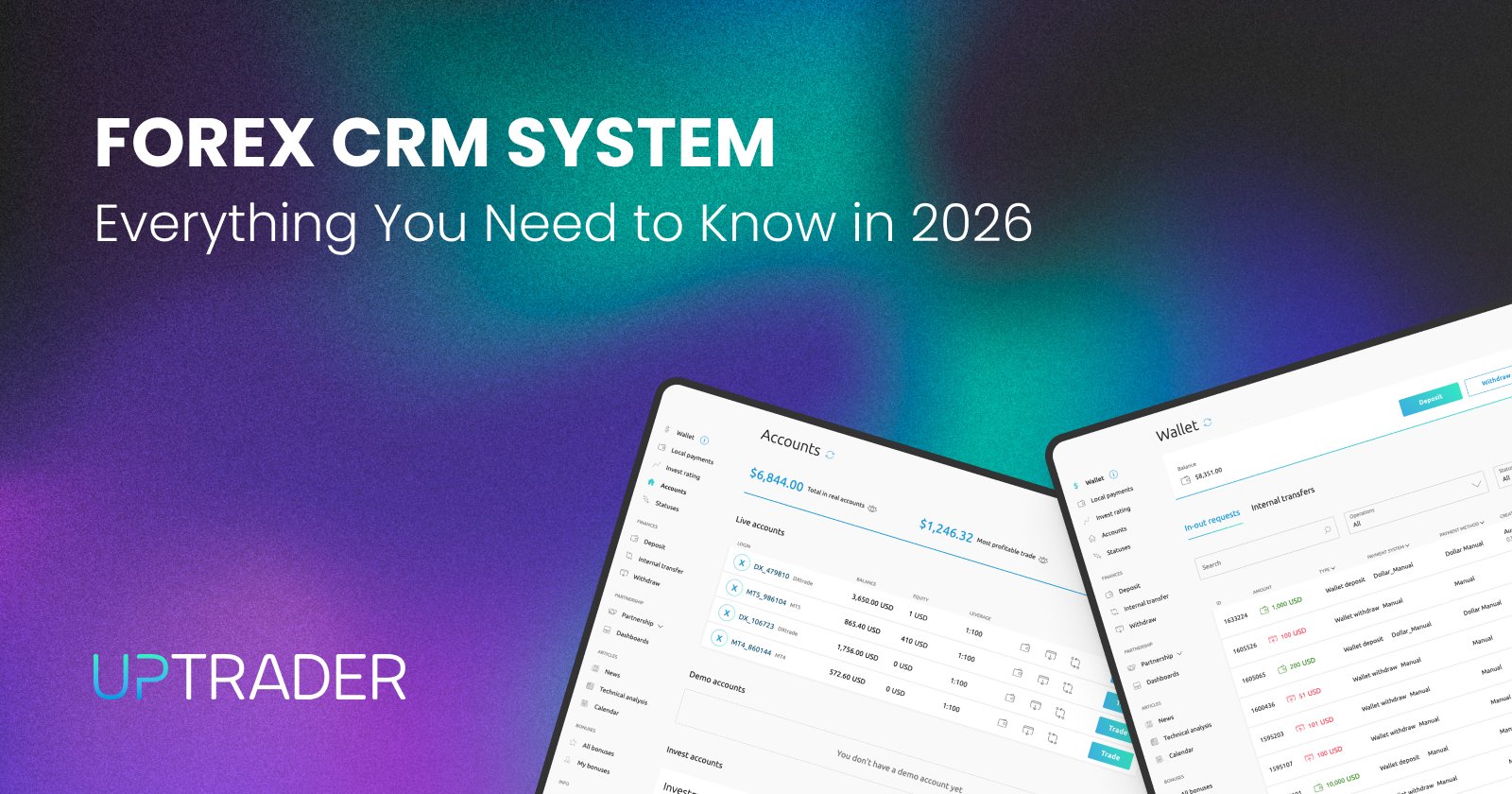Top 5 Forex CRM Features Every Broker Needs in 2025

Share this publication:
The forex market keeps developing as it is and comes with much competition among brokers in 2025. To stay in the race, brokers will have to invest in more tools designed to settle operations, take better care of clients, and keep them for years. It is one of many of the critical tools: Forex CRM software. Choosing the best Forex CRM for a broker is very important as it permits the broker to efficiently operate and compete.
In this article, we shall study the top five features that every Forex CRM must have by 2025. These will ensure that a broker can easily manage their lead generation and client support, as well as operational efficiency toward ultimate success.
Essential Forex CRM Features
1. Seamless Lead Management System
Lead capturing and conversion are important in the forex industry. Most Forex CRMs should thus have superb lead management tools and advanced lead management systems to enable the automation of lead capturing, tracking, and nurturing. Below are reasons why this feature is important:
- Automated Lead Capturing: The best Forex CRM has merged multiple marketing channels such as the organization's website, email as well as social media, making the software collect leads automatically.
- Scoring and Segmentation of Leads: By scoring all the leads based on how clients behave and interact with the brokers, they then will automatically know what leads to prioritize in high-quality prospects. Segmentation offers a specific approach to reaching out to leads.
- Pipeline Tracking: This means having a visual sales pipeline that allows the broker to monitor where each of them is in the sales process so that no follow-ups are missed and conversion rates are improved.
In 2025, a Forex CRM without robust lead management capabilities risks losing business to more organized competitors. Brokers should consider CRMs that simplify processes of lead nurturing and maximize conversions.
2. Comprehensive Client Management Tools
But it certainly shouldn't end there, Forex CRM should enable brokers to pursue much stronger connections with current clients. These client-management tools adjust for a personalized touch and, of course, somehow develop loyalty. Some of the key features include:
- Very Detailed Client Profiles: The very best Forex CRM will allow brokers to keep complete logs of every contact made by a client as well as the preferences and trading histories of the clients.
- Segmentation Of Accounts: A Forex CRM for a broker should enable account segmentation throughout the trading volume, account type, and even region-based segmentation to personalize services for the brokers.
- Automated Communication: The most important aspect is also in personalized email, notification, and updates so that every client stays connected.
- KYC and Compliance Management: As for the matter of evolving regulatory systems, a software CRM should integrate the KYC (Know-Your-Customer) and, of course, the provisions in AML (Anti-Money Laundering) compliance.
As simple as this may sound, the value of client satisfaction is in the great number of instances present in forex trading; hence, CRM enables seamless communication and account management, making it possible for brokers to offer excellent services.
3. Integration with Trading Platforms
In 2025, Forex CRM software will have to create connections with trade platforms such as Trading Platform 4 and Trading Platform 5, cTrader, and DXTrade. It ensures that the brokers and their customers have a seamless experience.
- Sync of live data in real-time: Brokers have already accessed live trade transaction statistics along with other things such as account balances and transaction history, within the CRM.
- Simplified onboarding: CRM systems that sync with trading platforms simplify the registration and account creation process. When clients use the CRM register feature, their information is automatically transferred to the trading platform.
- Advanced Reporting: Integration capability allows brokers to create customized detailed reports showing trading activity, client turnover, or income tendencies.
- Widget Customization: The many CRMs that have allowed the incorporation of widgets showing real-time data from different trading platforms thereby allowing brokers to view their operations at a glance.
4. Advanced Reporting and Analytics
Data-based decision-making will be critical for all brokers hoping to remain competitive through 2025. With the help of an advanced Forex CRM in reporting and analytics modules, brokers will be able to make decisions based on facts and improve strategies. Some of its features include:
- Custom Dashboards: The brokers can design dashboards that will show parameters that are more relevant to one's business like the client acquisition cost, trading volumes, and increase in revenues.
- Real-Time Reporting: Instant access to performance data helps the broker spot trends to change quickly.
- Client Behavior Analysis: The broker can customize the products and improve the retention capabilities of the broker by understanding how the clients trade through analyzing their trading behavior.
- Forecasting Tools: Predict the future before the client has a requirement, thus leaving nothing for other competitors. Brokers believe that predictive analysis will help them more effectively pursue market movements and what the client wants.
5. Automation and Customization
From 2025 onward, automation and customization will cease to be options with CRM software. Brokers now have to be equipped with tools that suit their peculiarities while performing automatic functions as to repetitive activity transformation. Some of them include:
- Prepare workflows for each broker: Each broker operates differently. An excellent CRM for forex brokers will have customized workflows that will match each broker's business-specific processes.
- Multi-language Support: A CRM broker is expected to be in a multi-language environment to cater to different audiences because the CRM broker serves clients worldwide.
- White-Label Solutions: Custom branding options for brokers allow them to market the CRM as their proprietary software, and this, again, enhances the professional impressions of the broker.
Thus, making the software empty routine tasks and giving personalized justifications lets the brokers look forward to strategic efforts with clients.
Why These Features Matter in 2025
Few understand the ever-changing nature of the Forex industry. The use of technology has continued to advance in this industry, with high hopes held by clients paving the way for emerging trends. To advance in the industry, forex CRM software is not simply a device to control contacts, but a well-structured asset that will make growth possible and improve efficiencies.
- Client Expectation: Today’s traders want a seamless experience wherein communication is personalized and updates come in real-time, and the robust Forex CRM is their answer in ensuring that client satisfaction will be at a higher level.
- Regulatory Compliance: As regulations get tighter, so does the need for the CRM to have features that aid the firms to remain compliant with the industry reference;
- Global Competition: The best Forex CRM will provide a tremendous advantage for brokers on a global platform because of the efficiency gained in running operations and retaining clients.
- Scalability: A broker's CRM software, like the business itself, should grow: Handle more clients as they become bigger with their growing operations.
Choosing the Best Forex CRM
Choosing the right CRM software for brokers is of utmost importance. Here is advice on how to go about making that choice:
- Take Stock of Your Needs: Determine the exact challenges your brokerage faces and choose a CRM that solves them.
- Look for Integration: Ensure that the CRM integrates your trading platforms and tools.
- Be User-Friendly: An obvious, simple, intuitive interface will be necessary for brokers and clients alike.
- Check Customization Options: Opt for a CRM that could be customized to the specific processes of your brokerage.
- Training & Support Evaluation: Choose the provider offering reliable customer support and training resources.
Conclusion and Final Thoughts
In the year 2025, it is a matter of success and survival for brokers to have the right Forex CRM software to use. They can invest in a CRM that can provide an automated lead understanding, offer client tools, platform integrations, advanced analytics, and a more solid automation system so that a broker's operational workflow can be increased and customer satisfaction improved.
This makes it necessary, as opposed to a choice, for brokers who wish to grow and flourish in the industry to adopt the best Forex CRM. These would greatly create value in the business operations and facilitate better client relationships, thus positioning the brokers at the top of the highly dynamic forex industry.
If you want to make use of these amazing features under a “single roof” then talk to a consultant on UpTrader today to try our robust CRM solution. If you are not comfortable with the features and want to just give it a try you can request a personalized demo so you know what you are getting into.







